Hi folks!
I never did tell you how I first got involved with the ducks at McKinnon's Pond, so I thought I'd better bring you up to speed! Seven years ago, I moved into a tiny little apartment about a mile away from the pond. The place was so small and dark that I got into the habit of taking walks every day, just to get away from those four walls. The pond was the turning-around point, and for the first few months, I didn't even stop to look at the scenery; I'd just glance over at the water as I turned and headed for home.
More than a few times, I'd see this middle-aged couple standing near the water with a small bag in their hands. At their feet would be a gang of ducks, eating the cracked corn they'd brought with them. Sometimes the corn would fall onto the tops of their shoes, and the ducks would come right up and eat it! It looked like fun, so I started bringing my own bag of corn. I'd sit on one of the many park benches, and the ducks would gather around my feet. They were mostly wild mallards, with three notable exceptions: two big white "Aflac" ducks, and a jumbo-sized mallard. After doing a little research, though, I learned that she wasn't a mallard after all, but a Domestic duck breed called Rouen. Since neither the Rouen or the white Pekins can fly, the only way those three got to the pond was by being dumped.
There was a natural increase, during this time, as Missy Miss Rouen got herself a mallard boyfriend and laid a bunch of eggs - eleven, to be exact. Because there are so many predators in the area, though, only three of those ducklings survived to adulthood. Today, you know them as Pretty Lady, Big Boy, and Pretty Boy. Eventually, Pretty Lady had a number of ducklings of her own before I started removing the eggs from all the Domestic girls' nests in an effort to keep the population in check.
There was also an increase because stupid people kept dumping their unwanted Easter ducks. Why in the world anyone would buy an animal knowing that they aren't going to keep it for a lifetime is beyond me, but that's what happens. I know because I had a conversation once with a couple who had dumped two Rouen girls after their grandchildren had tired of their Easter surprise. The couple had named one of the ducks Ethel. To this day, I have no idea who's who because the two ducks look alike. To keep things simple at feeds, I just refer to both of them as "Ethel-Ethel!"
A few summers ago, I had some tense words with the female half of that stupid couple because I wouldn't let the Ethels add to the population problem by letting them keep their eggs. The woman got so annoyed that she called Animal Control - little knowing that Officer Jeff and I work together to keep the population down! If I could rat the couple out here in my blog, I would, but alas, I never learned their names.
I will say this, though: last summer, I found the decapitated remains of a Domestic drake lying in the grass. It was a horrible sight. So, stupid duck-dumping couple, know this - 1) the minute you dumped the Ethels, you gave up any claim to them whatsoever; if I choose to remove the eggs from their nests, or even take those ducks home with me, I can do that because they're no longer yours. And 2) what happened to that poor headless duck can just as easily happen to the Ethels; that's the danger you put them in when you decided to dump them.
Over time, some Domestics died, others were dumped, and still others were very sneaky about their nest sites and I never found the eggs! Seven years later, there are roughly sixteen Domestic ducks living on McKinnon's Pond. I haven't named all sixteen because I can't actually recognize them all. Last summer, Freckle Duck had three Domestic drakes following her around, and they all had cream-colored tummies. To my untrained eye, they look exactly alike. The only way I can tell Big Boy apart from all the other large drakes is because he's such a huge chunk of duck that he stands out like a sore thumb.
You might think that Pretty Boy is the only black duck on the pond. For a time he was, but not anymore. Ducky, who has white rings around his eyes that make him look rather studious, was dumped several years ago, while Baby Fuzz (o.k., so they're not always the most creative names!) was one of those ducklings that Pretty Lady snuck onto the pond when I wasn't looking. The three black ducks are easy for me to tell apart because their markings are so distinctive. That, and one of them only has one wing!
Rounding out the line-up are Pretty Boy's girlfriend, the appropriately-named Girlfriend Duck; Peepers the Pekin - another duckling that Pretty Lady snuck in behind my back; Puddleduck, a Pekin who was dumped last summer; and the two Pekins I dubbed, "Fellows!" Back when I was first feeding the original three Domestics, I would greet them all as one by calling, "Fellows!" The name stuck, and to this day, I still address those two guys as such.
You're probably wondering what all the fuss is about, and why I devote so much of my time, energy, and money to what would seem to be boring animals. But that's just the thing - they're not at all boring! I learned that back in the early days, when, as I approached the pond on my walks, the ducks would catch sight of me. They'd start quacking to each other, something along the lines of, "Hey! The corn lady is here!" Then they'd all race toward me at once - up to thirty, forty ducks (mostly wild mallards) stampeding in my direction, all quacking madly, and every one of them glad to see me. That gets addictive very quickly, I can tell you!
At some point in the proceedings, I bought a point-and-shoot camera, and got the inspirational idea of sitting on the ground among them. I now had a ducks-eye view of the world, and, since I wasn't towering over them anymore, they became much more comfortable with me.
It's been that way for seven years now: I'll get out of the car, pick a spot for the feed, pour out a large measure of cracked corn mixed with duck pellets, then sit cross-legged on the ground in front of them. The ducks never stay in one place for too long, so they'll eat some food, then wander around a bit, then eat more food, then go down to water's edge for a drink. Most of the ducks get within a few inches of me at least once during a feed. I try very hard to observe the rules: no loud noises, no sudden moves. Most of them don't want to be touched, either.
Even so, I'll make a point of running my fingers through the tail feathers of some of them. I do this regularly with Pretty Boy and the Ethels. I want them to get used to my touch and not fear it, because as we've already seen with my favorite duck, sooner or later someone's going to have to go to the vet! Fortunately, the ducks have been lucky, over the years, and had very few mishaps.
Most of the problems and injuries have to do with fishing line and hooks, which careless people leave lying around all over the place. These days, I carry a bag of specially-chosen gear in my trunk, all of it designed to remove fish hooks, or cut fishing line off of duck legs. In a perfect world, I'd never even need to think about a bag of tools in my trunk. Regretably, it's a huge concern, and I've seen the damage fishing line can do: it once wound so tightly around a wild mallard's leg that it eventually amputated that leg. Because the duck was wild, I never got near enough to help him. It took two whole weeks before that leg rotted sufficiently to fall off.
I'm going to end on that downer note, folks, because it was humans who left the fishing crap lying around, and humans who can make a difference with the animals, if they choose. In the first place, please don't bring home any animal that you're not prepared to take care of for the rest of its' natural life. In the second place,
even if you don't have any pets of your own, you can still help make the world a better place through kindness to all critters. If you don't have the money to donate to a worthy critter cause, maybe you could donate some of your time, or give a piece of artwork to a charity fund-raiser. You could even donate your unwanted clothes or electronics!
If nothing else, every one of us can certainly ramp up our awareness of how small we're making their habitat, and that what's left of it doesn't need to be riddled with cigarette butts, empty pop cans, or used-up fishing line. Thank you all for stopping by. Until next time, please be kind to all the critters!
Friday, December 28, 2007
Subscribe to:
Post Comments (Atom)
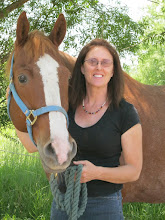






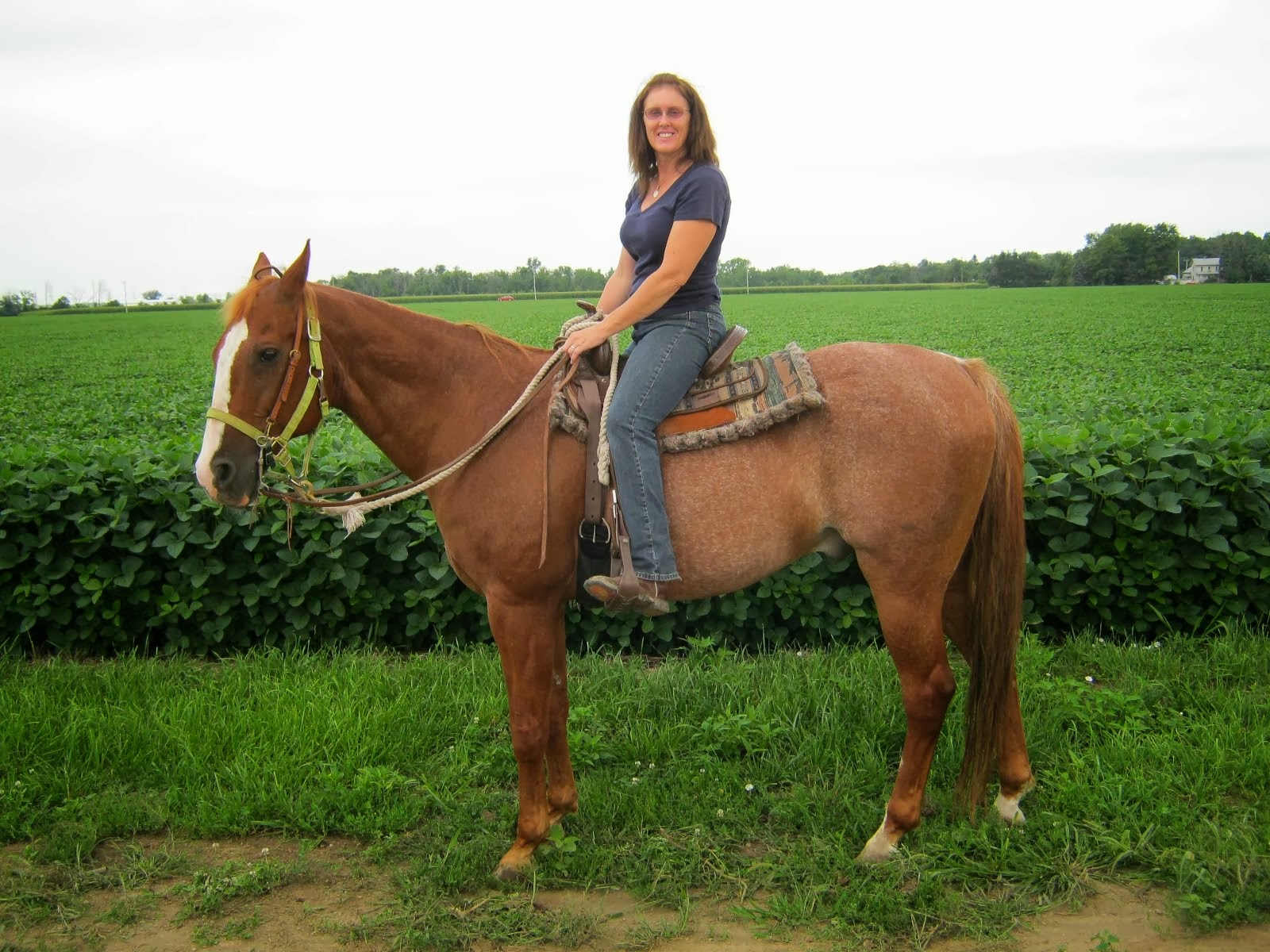





























































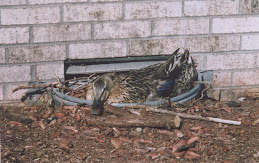




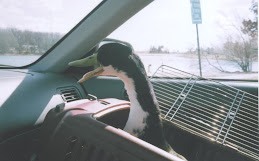















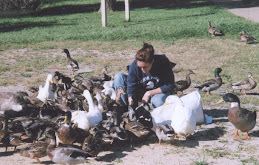



No comments:
Post a Comment